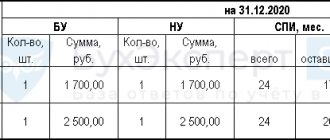Legislation
According to Art. 140 of the Labor Code of the Russian Federation, upon dismissal, the employer must pay wages on the last working day. If the employee was not working at this time, the money is paid no later than the day following the day the corresponding demand is presented to them. The latter applies to enterprises in which funds are issued through a cash register.
In most organizations, salaries are transferred through banks, so in any case you need to pay on the last working day, because to receive a non-cash transfer there is no need to go to work and go to the cashier.
What laws need to be taken into account if wages are not paid after dismissal, in addition to Art. 140 Labor Code of the Russian Federation:
- Art. 22 of the Labor Code of the Russian Federation: the employer is obliged to pay wages on time.
- Art. 136 of the Labor Code of the Russian Federation: earnings must be paid every 15 days.
- Art. 126 of the Labor Code of the Russian Federation: upon termination of an employment contract, unused vacation days are compensated in money.
- Art. 178 of the Labor Code of the Russian Federation: upon dismissal due to reduction or liquidation, severance pay is paid in the amount of two average monthly earnings.
- Art. 181.1 of the Labor Code of the Russian Federation: a collective agreement or local regulations may provide for additional benefits upon dismissal.
- Art. 181 of the Labor Code of the Russian Federation: if a manager, his deputy or chief accountant is fired due to a change in the owner of the enterprise’s property, they are paid at least three average monthly earnings.
- Art. 308 of the Labor Code of the Russian Federation: individual labor disputes between employees and employers are considered in the courts.
- Art. 78 of the Labor Code of the Russian Federation: the contract can be terminated by agreement of the parties, providing for additional payments (compensation), in addition to the mandatory ones.
Note! When resolving a dispute over non-payment of wages on the day of dismissal, it is important to comply with deadlines. You can go to court within one year from the day the money was supposed to be transferred (Article 392 of the Labor Code of the Russian Federation). If the deadline is missed for a valid reason, it can be restored by indicating the corresponding requirement in the application.
What to do for those who worked without a contract
Often, employers, trying to avoid paying hefty “salary” taxes, do not formally register employees and do not enter into employment contracts with them. And it seems that in this situation, an employee who did not receive payment on the day of dismissal will in no way be able to recover it from the employer. However, this is a false belief. In fact, it is possible to recover the final payment even if the employee worked at the enterprise without a contract.
This can be done through the court. To do this, you need to file a claim to establish the fact of an employment relationship, and confirm your employment with one, or better yet, several pieces of evidence:
- Letters, assignments, applications, statements, other documents;
- Witness's testimonies;
- Recording from video surveillance systems;
- Audio recordings;
- Other evidence admissible by the civil procedural legislation of the country.
Employer's liability
Delays in wages after dismissal threaten the employer with several types of liability:
- Material (Article 236 of the Labor Code of the Russian Federation): a fine of no less than 1/150 of the rate of the Central Bank of the Russian Federation for each day of delay.
- Administrative (Part 6 of Article 5.27 of the Code of Administrative Offenses of the Russian Federation), if there are no signs of a criminal offense in case of delay in payment of compensation upon dismissal: fine for an official - up to 20,000 rubles; for individual entrepreneurs – up to 5,000 rubles; for a legal entity – up to 50,000 rubles.
- Criminal (Article 145.1 of the Criminal Code of the Russian Federation), if the delay in salary after dismissal is the fault of the manager, there is personal interest and the money is not transferred for more than three months: a fine of up to 120,000 rubles. or in the amount of earnings up to 12 months; forced labor for up to two years; imprisonment up to one year; deprivation of the right to engage in certain activities or hold specific positions for a period of up to one year.
Note: criminal liability of the employer for failure to pay upon dismissal usually occurs in the most difficult cases, when guilt and personal interest are 100% obvious. Usually they are brought under the Code of Administrative Offenses of the Russian Federation.
Unlawful dismissal - how to challenge and where to go
Work upon dismissal - procedure and features
Where to contact
The handling of a complaint or claim will vary depending on whether the employment is formal or informal. Because the requirements in these cases will be different.
In case of unofficial employment
Unofficial employment means that no employment contract was concluded. In Art. 67 of the Labor Code of the Russian Federation states that it is drawn up in writing, but is considered concluded from the moment the employee begins work on behalf of the manager. Therefore, an informal worker needs to go to court with several demands at once:
- on recognition of the employment contract as concluded;
- on the collection of unpaid wages;
- on recognizing the dismissal as illegal (if necessary);
- on recovery of earnings during forced absence (if required);
- about making an entry in the work book (when necessary).
There may be other requirements depending on the situation.
For official employment
The most important place to go if you haven’t paid your severance pay is the court. There you can collect:
- earnings and compensation for moral damage;
- reinstatement in case of illegal dismissal;
- recognize the employment contract as concluded;
- recover compensation for the period of forced absence.
Important! The statement of claim is filed with the district court at the location of the defendant. But you can also apply at the plaintiff’s place of residence (Article 29 of the Code of Civil Procedure of the Russian Federation).
If you are faced with a delay in payment due to dismissal at your own request, by agreement of the parties or on the initiative of the manager, you can also contact the prosecutor’s office or the labor inspectorate for the protection of labor rights.
Are you tired of reading? We’ll tell you over the phone and answer your questions.
State Labor Inspectorate
This organization was created to comply with labor legislation regulations and supervise the implementation of the Labor Code of the Russian Federation. There are no specific templates for drawing up an application to the inspectorate. You can submit your appeal in free form, indicating your contact information and the exact name and location of the company where you work.
Sample complaint about non-payment of wages, compensation for vacation and interest for delay.
The appeal can be submitted on the official website of the civil service (https://www.rostrud.ru/) or delivered by mail. The nearest territorial unit and inspection contacts can be found through this service: https://www.rostrud.ru/inspections/
Based on the complaint received, the labor inspectorate will visit the company, conduct an inspection, and determine the need for sanctions (if violations are detected). Labor inspectors will issue a demand to the violator to correct the violations. If the employer ignores the instructions, the State Tax Inspectorate can independently transmit the information to higher supervisory government agencies. If the labor inspectorate does not take active action, the fact of the appeal will become additional support in court.
Service employees will help you draw up a statement of claim and prepare a package of documents for trial. If there are frequent violations of salary payment deadlines, contacting the inspectorate may initiate an inspection. To resolve a dispute regarding the amount of debt, you need to go to court.
Step by step procedure
Let's consider the procedure for going to court, the prosecutor's office and the labor inspectorate, as well as what else can be demanded, in addition to the money earned.
Going to court
We have identified 9 steps that must be followed to resolve the situation in court.
Step 1: collecting documents
To confirm that you did not pay your salary upon dismissal, you will need:
- a copy of the work book;
- a copy of the employment contract;
- certificate from the Federal Tax Service (information on salary accruals);
- a copy of the wage regulations;
- income certificate;
- notice of service of the claim on the defendant;
- other documents related to labor activity.
It is not necessary to submit all documents. Sometimes a copy of the work book and contract is enough. But the more evidence, the higher the likelihood of the claim being satisfied.
Elena Plokhuta
Lawyer, website author (Civil law, 7 years of experience)
Note: if the plaintiff worked unofficially, he will have to prove in court the fact of fulfilling his labor duties. Any documents of the organization that have his signatures on them will be useful. You can also apply to call witnesses.
Step 2: drawing up a statement of claim
The statement of claim is drawn up according to the rules of Art. 131 Code of Civil Procedure of the Russian Federation. What it says:
- name, address of the court;
- Full name, address, telephone number of the plaintiff;
- name of the organization, full name respondent manager;
- period of employment (dates);
- from what time earnings are not accrued;
- the amount of unpaid wages with calculation;
- the amount of the penalty for late payment;
- measures taken to resolve the issue pre-trial (if taken);
- claim;
- date of compilation and signature.
Consultation on document preparation
Step 3: sending the statement of claim to the defendant
If the employer does not pay the dismissal payment, he is the defendant. From October 2021, plaintiffs are required to send them separate copies of statements of claim, whereas previously this was done by the courts.
You can send the application by registered mail with acknowledgment of delivery, or by e-mail if the plaintiff receives reports on the viewing of letters. The notice or report will be needed later for the court.
Step 4: Submitting documents to the court
Once the defendant receives a copy of the claim, you can file documents in the district or city court. If the employer does not pay wages upon dismissal, the magistrate court will not consider such a case.
Important! According to Art. 333.36 of the Tax Code of the Russian Federation, if an enterprise has not paid wages upon dismissal and the employee recovers it through the court, there is no need to pay a state fee when filing a claim. All plaintiffs in labor disputes are exempt from payment.
Step 5: Pretrial Hearing
The judge accepts documents for processing within five days from the date of receipt, then issues a ruling on the appointment of a preliminary hearing (Article 152 of the Code of Civil Procedure of the Russian Federation). Copies of the determination are sent to both parties.
At the pre-hearing, the claims and circumstances of the case are clarified, evidence can be presented, and petitions can be filed. It is carried out in the form of a conversation.
Note! If the defendant does not come to the conversation, although he has been notified of the date and time, this will not become a basis for refusing to consider the claim.
Step 6: Litigation
After the pre-hearing, the judge makes a decision to assign the case to trial. Here we are already studying evidence confirming that wages were not paid after dismissal. If a request is made to call witnesses, they are also questioned.
Step 7: Making a decision
If the calculation was not made on the day of dismissal and the employee went to court, the case will be considered within two months (Article 154 of the Code of Civil Procedure of the Russian Federation). The judge makes a decision alone, it comes into force in a month, but is subject to immediate execution (Article 211 of the Code of Civil Procedure of the Russian Federation).
Step 8: obtaining a decision and writ of execution
The writ of execution will be issued immediately after the proceedings. A copy of the decision can be obtained within five days from the date of adoption by contacting the office or the assistant judge (Article 214 of the Code of Civil Procedure of the Russian Federation).
Step 9: receiving payment based on a court decision
Having received a writ of execution for the collection of unpaid funds, the plaintiff can apply with it to the FSSP at the location of the defendant. Then the money will be forcibly withheld from him, taking into account the provisions of the Federal Law of October 2, 2007 No. 229-FZ “On Enforcement Proceedings.” They can seize the company’s accounts, seize property to pay off the debt, but most often everything is resolved by softer methods if the debtor is determined to fulfill the decision himself.
Complaint to the prosecutor's office
The second institution where you can turn if you haven’t been paid for your dismissal is the prosecutor’s office. This is done like this:
- A person submits a complaint, it is considered within 30 calendar days (Order of the Prosecutor General's Office of Russia dated January 30, 2013 No. 45 “On approval and introduction...”).
- During the consideration of the complaint, the prosecutor or other authorized person conducts an on-site inspection of the enterprise.
- Based on the results, a presentation is issued indicating measures to eliminate the violation and deadlines. They may be subject to administrative liability.
Note! Acting in the interests of the applicant, if the dismissal payment is not paid, the prosecutor has the right to file a claim in court (Article 45 of the Code of Civil Procedure of the Russian Federation).
Contents and sample of the complaint
If the payment was not made on the day of dismissal and a complaint is filed with the prosecutor’s office, it must indicate:
- name and address of the prosecutor's office, full name prosecutor;
- Full name, address and telephone number of the applicant;
- FULL NAME. manager, name and address of the employing organization;
- periods of work;
- the period of non-payment, the amount of unpaid funds;
- request for an inspection;
- date, signature.
Sample complaint
Consultation on document preparation
Complaint to the labor inspectorate
The third place to go if the dismissal payment has not been paid is the labor inspectorate. The complaint will be reviewed within a month and the results will be reported in writing. Based on the results of the inspection, the employer may be held administratively liable and an order may be issued to eliminate the violation. If he does not comply with the requirements of the order, a decision on forced execution is made, which has the force of a writ of execution (Article 360.1 of the Labor Code of the Russian Federation).
You can submit a complaint in several ways:
- Personally.
- Through Onlineinspektsiya.RF.
- Russian Post.
- Through a representative by proxy.
Anonymous requests are not considered by the inspectorate.
Contents and sample of the complaint
If the dismissal payment is not paid, the complaint to the inspectorate must contain the same data as for the prosecutor's office. There is no unified form, but the department’s website usually has its own samples. The main thing is to provide information about all parties and circumstances of the case.
Consultation on document preparation
Absenteeism due to delayed salary
When you encounter such a problem, you need to address the issue directly to your boss.
If wages are not paid for more than 15 days, you can demand immediate payment of the salary and write a warning about absence from work due to non-payment of wages (Articles 379 and 142 of the Labor Code of the Russian Federation) .
It is important to protect yourself so that the administration cannot turn your protest into a form of routine absenteeism and formalize your dismissal. Example of a notice of suspension of work due to non-payment of salary.
The written notice must contain a justification for the intention to absenteeism from work. You inform that the next day after repayment of the debt you are ready to begin further performance of duties under the employment contract. You need to write an application in two copies. Use the second complaint with a note that yours has been accepted for consideration as a defense if the administration decides to fire you for protesting. As an insurance policy, you can also send a warning by registered mail with acknowledgment.
You can only miss work from the next day after management receives your warning letter.
The next day after receiving the debt, you must report to your workplace. During absence from work, the company must also accrue wages. Employees employed in the following areas do not have the right to suspend work due to delays in wages:
- maintenance of life support systems (heat, energy, gas supply, communications, emergency or emergency medical care, etc.);
- hazardous production facilities;
- government agencies;
- all employees who find themselves in the territory of an emergency or martial law;
- fire, emergency, search and rescue services, armed forces, etc.
The warning letter about absenteeism and any documents that insure you in the eyes of the labor code must be certified by the employer or the person in charge. Require a signature and/or seal!
If you take the necessary precautions, absenteeism from work due to non-payment of salary is quite safe from the point of view of dismissal or sudden fines. But when giving an employer such ultimatums, you need to be prepared for a quick job change.
Arbitrage practice
In practice, there are many cases of non-payment of settlement payments upon termination of an employment contract. Here are some examples:
- The plaintiff was not paid upon dismissal. He wanted to be reinstated in his position and collect money, change the wording in the work book. By decision No. 2-1029/2014 2-1029/2014~M-991/2014 M-991/2014 dated August 28, 2014, the wording was changed and the remaining claims were rejected.
- The plaintiff was not paid his salary upon dismissal; he went to court to recover it. By decision No. 2-1111/2014 2-1111/2014~M-1075/2014 M-1075/2014 dated November 10, 2014 in case No. 2-1111/2014 the requirements were satisfied.
- The plaintiff was not paid settlement and severance pay for three months during the reduction; he recovered everything through the court (Decision No. 2-1177/2011 of September 29, 2011 in case No. 2-1177/2011).
Lawyer's answers to private questions
Where to turn if they don’t pay me upon dismissal and I received a gray salary?
It is unlikely that it will be possible to recover the unofficial part of the gray salary even through the courts. You can file a complaint with the labor inspectorate or the prosecutor's office.
What to do if the employer did not pay for the dismissal and then filed for bankruptcy?
The corresponding claim can be submitted to the arbitration court; in this situation, employees are creditors. An alternative option is to apply to the labor inspectorate. But the demands of employees are fulfilled in the second place (Article 134 of the Federal Law of October 26, 2002 No. 127-FZ “On Insolvency (Bankruptcy)”). Debts are repaid using property sold as part of bankruptcy proceedings.
What to do if you didn’t pay the full dismissal payment, but only a part?
The remaining amount can be recovered in court.
I was not paid the final payment upon dismissal, although according to the documents all payments were made and a pay slip was issued. What to do and how to prove everything in court?
One option is to submit to the court a statement of the bank account into which the salary is received. There it will be clear that the money was not transferred.
The employer sent me a dismissal order for non-payment of wages, I received it by mail. I was on sick leave. He paid for his wages, but not for his sick leave. Is he obliged to do this?
Yes, sick leave is paid by the organization if it is opened before the termination of the employment contract or within 30 days after (Part 3 of Article 13 of the Federal Law of December 29, 2006 No. 255-FZ “On Compulsory Social Insurance”).







